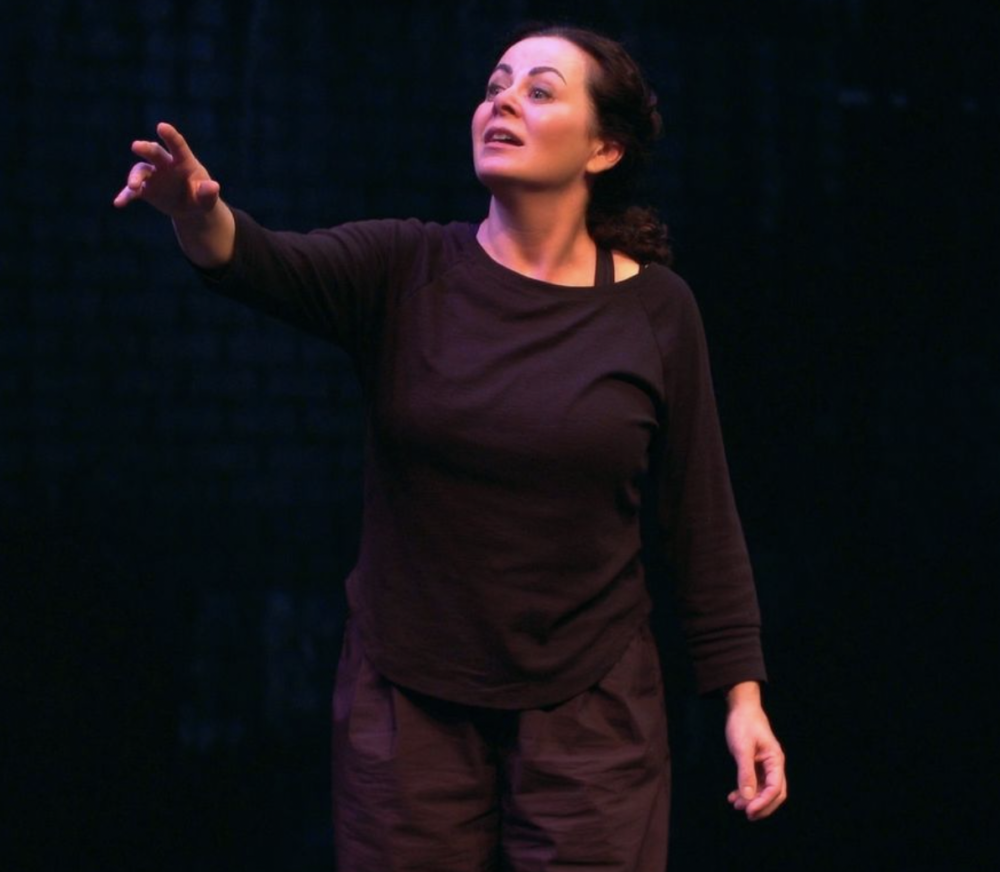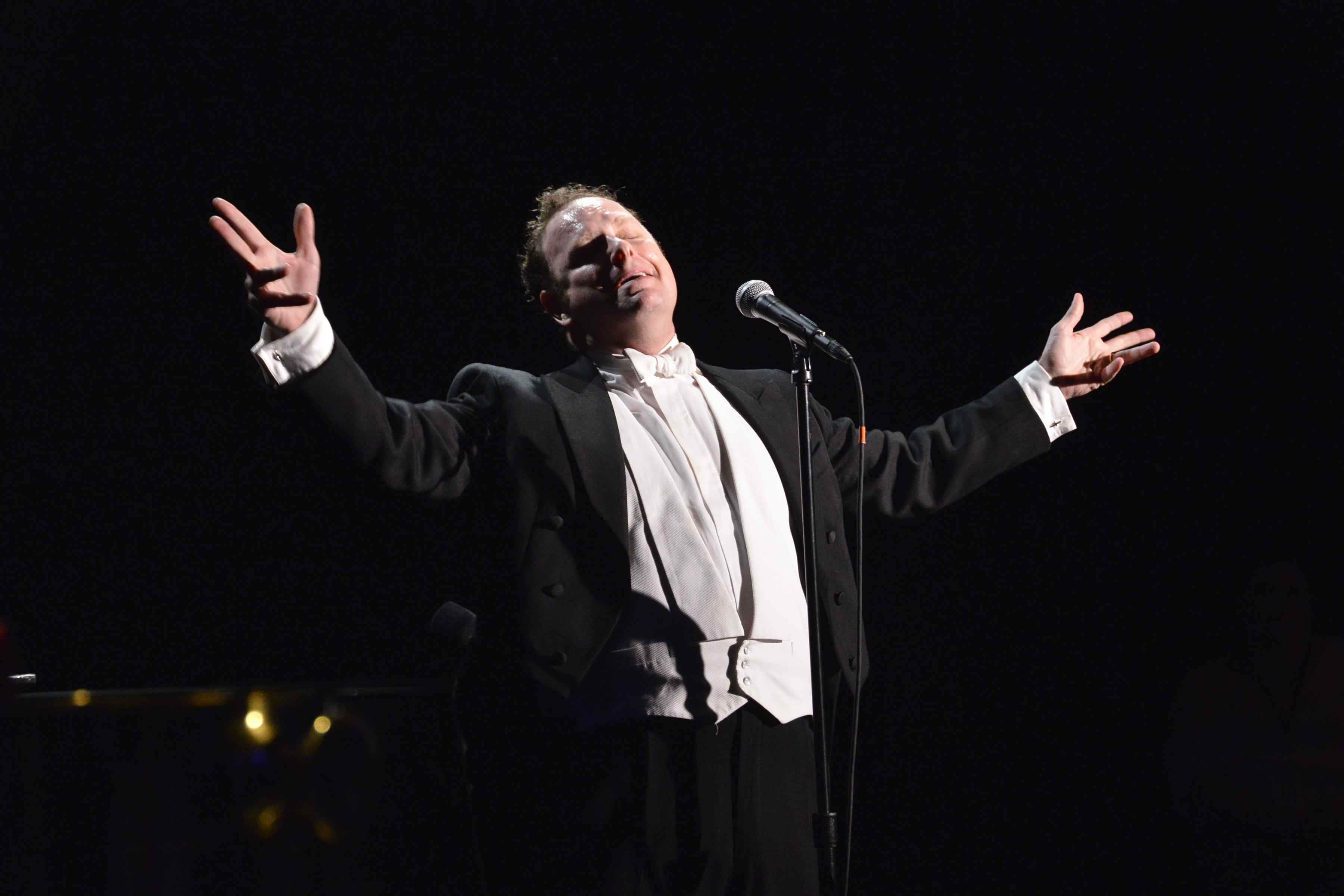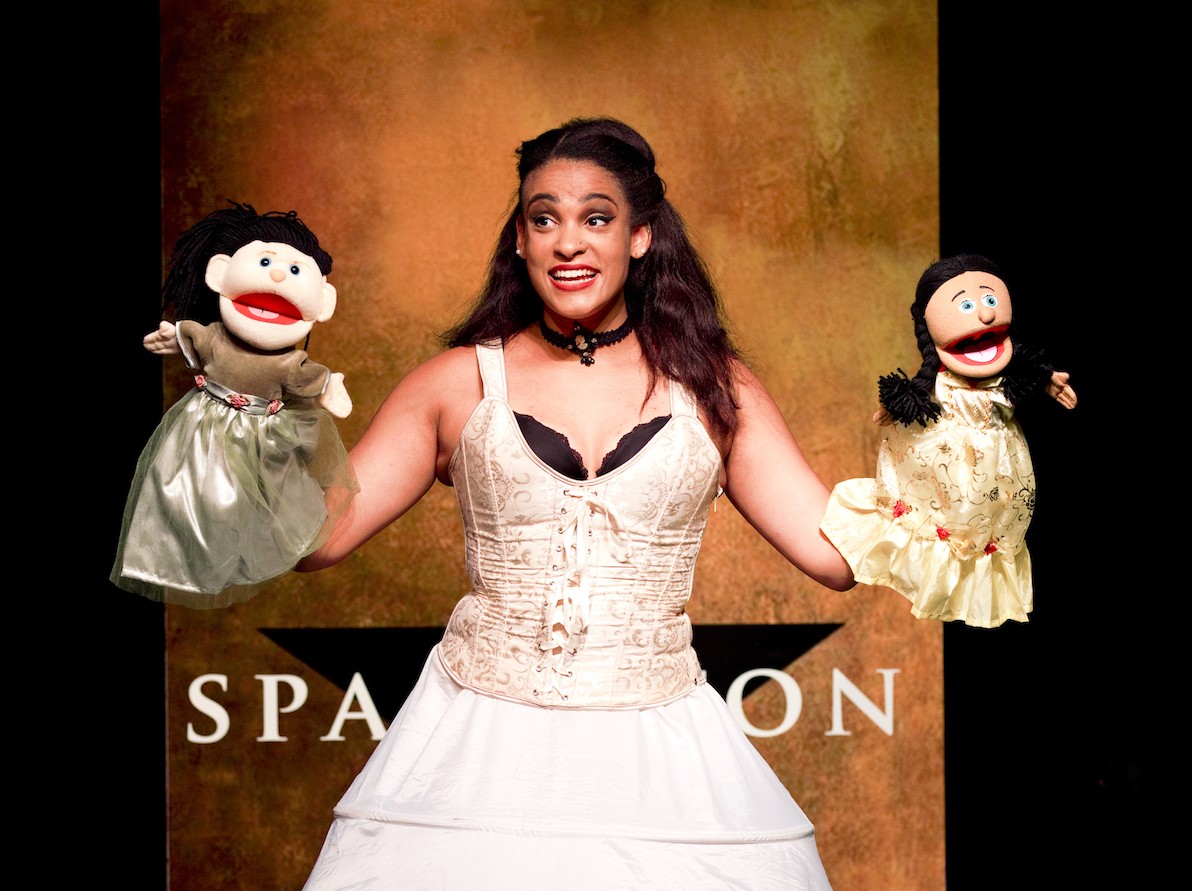A PERFORMANCE ON SCREEN . . .
By Marilyn Lester. . .

Geraldine Hughes’ biographical one-woman show, Belfast Blues, is purely miraculous in any number of ways, from the masterful narrative to the stunning performance, to the many deep layers of meaning embedded in the text. Belfast Blues is also no less powerful today in this last production of the work, performed in 2019 at Belfast’s Lyric Theater, than it was at its 2003 debut in Los Angeles. I was lucky enough to catch the New York premiere at The Culture Project in 2005 and was as blown away at that outing as I was in this iteration. Hughes was riveting both times, even within the confines of viewing it on a computer. It takes a special power for an actor to hold a stage alone for an extended performance, especially on a small screen, and Hughes possesses that power in spades. Belfast Blues packs an enormous punch in just 75 minutes. Hughes, the playwright, has crafted a play of great import, with tight dialogue that wastes not one word. Nor does Hughes waste any motion in her dynamic performance. Even a raised eyebrow speaks volumes.
Belfast Blues, set in Belfast, Northern Ireland in the 1970s and 80s, brings to life the worst of The Troubles—the apex of fierce conflict between minority Catholics and majority Protestants. The history of Ireland, the Republic and the Six Counties that make up the British-ruled North is a long and torturous one, but the three decades of the Troubles was particularly violent—and the child Hughes was caught smack in the middle of it. What elevates what is essentially a tragedy, is Hughes’ passion and humor. Evoking unembarrassed laughs while describing a bombing is certainly a miracle. The Irish have a talent for that, for wit and for irony, and in their crafty ability to make light of something so painfully dreadful.
The tone of Belfast Blues is set by the astute staging of the play; Hughes in simple black slacks and top performs in a wide spot on an otherwise dimmed stage. Behind her are muted projections, judiciously and sparingly changed in relevance to the dialogue. In this atmospheric setting, the focus is intensely on the actor. Anything more elaborate would surely siphon the power away from the play and its author. Hughes portrays herself as a youngster, as well as a cast of other children and adults, with keen observation and impeccable timing in the delivery of her lines and the very words within those lines. Hughes is a kinetic force, delivering an energetic, physical performance utilizing every part of her body and face. She’s a wonder to behold.
The distance between the end of The Troubles in the late 1990s, and the writing of Belfast Blues is a far one now. But does that make Belfast Blues dated, less relevant? Emphatically, it does not. The truths of Belfast Blues are the truths of the human condition: what it means to love, to bear and raise children, to strive for a better life, to deal with adversity and mourn the dead. We, the audience, bear witness to all of these things as Geraldine is born into The Troubles and spends many growing up years in the most treacherous housing project in Belfast city. There’s not much relief to be found there between the ongoing conflict and the poor conditions. Ironically, when the family does manage to escape those confines, the little house they’re given is in one of the most dangerous areas of the city, near the so-called Peace Line, the literal fence erected to separate the Catholic and Protestant sectors of Belfast. In all of this we’re eyewitness to the saga of a family that could be yours or mine, doing its best to survive and thrive despite punishing circumstances.
Belfast Blues, in its title, gives a subtle but powerful insight into the depth of the play. The blues developed from the musical roots and experiences of enslaved Blacks in the American South. The original forms were loosely narrative, reflecting the travails of oppression in everyday life. For centuries the Irish, while not technically enslaved, lived and labored under the oppressive thumb of British rule. If anyone has a right to sing the blues it’s certainly Hughes and all who endured the strife of the subjugation that birthed The Troubles.
Most touchingly, the continuing relevance and power of Belfast Blues lies in the performer’s dedication “to all children born into conflict.” Sadly, the world is still a much-troubled place. Happily, there is art and a work like Belfast Blues to ease the pain and help the afflicted heal.
The stage production of Belfast Blues was deftly directed by Carol Kane. Video editing for the screen version is by Jude Lynch, with sound design by M. Florian Staab. Dates remaining: February 13 and 17 www.irishrep.org





















